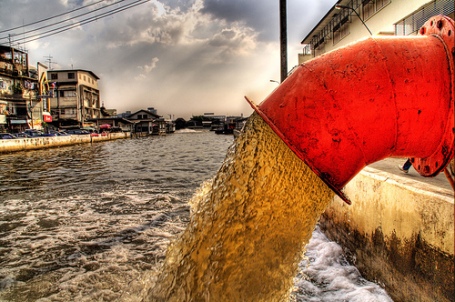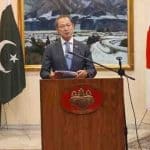BEIJING, China hopes to cooperate with Pakistan in water pollution control, protection of drinking water sources and recycling of waste water as it has gained experience through explorations in the sector.
This was stated by Wang Dong, director of Water Ecological Environment Planning Institute in Chinese Academy of Environmental Research.
Wang Dong stressed that the first step of water pollution control is legislation. China adopts a series of related regulations such as the Water Pollution Prevention Law. “China has more than 60 criteria for industrial waste water emission. Moreover, there are local emission criteria for specific areas”.
“In addition to installing online monitoring equipment to inspect conventional water pollution indicators, industries in China also need to conduct manual monitoring regularly.
Third-party agencies and environmental management departments also come for monitoring and impose fines on illegal sewage discharge,” he told China Economic Net.
China started to treat domestic sewage on a large scale in the 1990s, the work started from cities to towns and then to rural areas.
According to Wang Dong, the daily processing capacity of sewage treatment facilities in China now has exceeded 200 million cubic meters. “Collection facilities have also been constructed. To avoid secondary pollution, we also attach great importance to the treatment of sludge generated during sewage treatment”.
Wang Dong said that China’s sewage treatment plants produce about 70 billion cubic meters of water per year. “To ensure that the water can be reused, we adopt different treatment criteria according to the requirements of water users. Industrial water, landscape water, municipal miscellaneous water, etc., all have different water treatment standards,” he added.
Wang Dong also shared some Chinese experiences about how to guarantee the domestic supply of drinking water. “It is very important to set the water source protection zones.
No pollution discharge is allowed in the first-grade protection zones, where the government also conducts overall management. In addition, citizens have the rights to know about the drinking water protection regulation and they are encouraged to participate in the relevant decision-making and monitoring of polluted water discharge”, he added.
As year’s World Environment Day, themed “Restore Our Earth” is to be hosted by Pakistan on June 5. Prof Dr. Muhammad Nafees, Chairman of the Department of Environmental Sciences elaborated on the challenges and issues in water pollution that Pakistan is facing.
“Pakistan should first clarify what the problem they have in water pollution control and what the goal they want to achieve. According to the difference between the problem and the goal, a suitable treatment can be adopted,” Wang Dong suggested.
Follow the PNI Facebook page for the latest news and updates.









